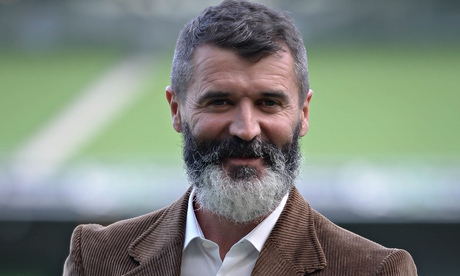
Roy Keane opens this year’s autobiography with a discussion of the expensive and embarrassing legal case that resulted from comments in his last autobiography. If the reader imagines this experience might lead Keano to play it safe this time round, he disabuses us on page 16 when he describes a hotel punch-up with his Manchester United team-mate Peter Schmeichel.
He clearly revels in confounding expectations: later on, he admits he joined Celtic – turning down Real Madrid – primarily because their manager, Gordon Strachan, didn’t seem especially bothered to have him and he needed to prove him wrong. This compulsion makes The Second Half (Weidenfeld & Nicolson £20), written with Booker-winner Roddy Doyle, comfortably the most engrossing sports autobiography of 2014.
The other sports book to dominate headlines this year was Kevin Pietersen’s KP (Sphere £20)correct, ghosted by David Walsh. This is less ambitious stylistically, but similarly titillating, perhaps because neither he nor Keane is constrained by much self-doubt. Reading between the lines, however, KP does offer a sly insight into a peculiarly English sport mentality. Had he played for any other nation, the South African-born Pietersen would not only have flourished on the field, as he did for England, but also been revered off it, too. His blustery autobiography makes it clear why his hook-up with England was always a marriage of convenience doomed to end in divorce.
There are more lurid revelations, though of a very different and more challenging kind, in Anna Krien’s Night Games (Yellow Jersey £12.99). In the past decade, there have been more than 20 accusations of sexual assault made against Australian sportsmen, many of them Aussie Rules players. Krien’s book follows one case, though it’s not a high-profile one; instead, it involves a friend of some young stars – “a hanger-on”, the prosecution calls him – who was alleged to have raped a woman in Melbourne after a match in 2010. This is powerful, important writing, and Krien shows her workings throughout, including uncomfortable twinges of empathy for the accused.
A much higher-profile court case is picked apart in an avalanche of Oscar Pistorius books. Again, the power of these accounts comes from the light that one incident can cast on disturbing cultural problems, specifically violent crime against women in South Africa, a country where police estimate that a woman is raped every 36 seconds. The fullest and most analytical of the new batch is John Carlin’s Chase Your Shadow (Atlantic £17.99).
The boom in cycling books shows no signs of being punctured. Lance Armstrong still looms large over the sport, but publishers seem to be becoming more creative, even esoteric, with their subjects. One example is Herbie Sykes’s moving and enjoyable The Race Against the Stasi (Aurum £18.99), which tells the story of the Peace Race, the Eastern Bloc’s answer to the Tour de France, and specifically of a cyclist from East Germany in the 60s called Dieter Wiedemann, who defected to the west in 1964.
Another offbeat collection is Lanterne Rouge (Yellow Jersey £16.99) by Max Leonard, which concerns the men who finish last in the Tour de France, literally the longest-suffering competitors in perhaps the world’s most painful race. Leonard extracts the dignity that sometimes exists in sporting failure; this is not the world of Armstrong, Keane or Pietersen and all the more appealing because of that.

